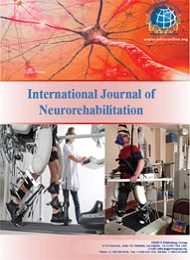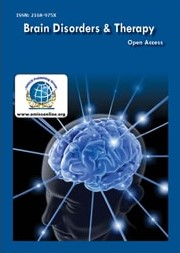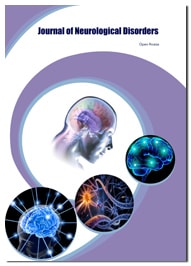Theme: Stroke Awareness: Courage, Faith, Hope and Strength
European Stroke Conference 2020
Stroke 2020 committee, we are pleased to invite you to join the upcoming “9th International Conference on Stroke and Cerebrovascular Diseases” to be held during July 27-28, 2020 in Webinar
Stroke 2020 has been planning and aiming to stimulate new techniques for the treatment of Stroke and Cerebrovascular Diseases that would be beneficial for the Neurology, Neurosurgery and Neuro Oncology.
The conference will be organized around the theme ''Stroke Awareness: Courage, Faith, Hope and Strength"
Conference Opportunities
For Researchers and Faculty Members:
- Speaker Presentations
- Poster Display
- Symposium hosting (4-5 members/team)
- Workshop organizing
For Universities, Associations & Societies:
- Association Partnering
- Collaboration Proposals
- Academic Partnering
- Group Participation
For Students and Research Scholars:
- Poster Competition (Winner will get Best Poster Award)
- Young Researcher Forum (YRF Award to the best presenter)
- Student Attendee
- Group Registrations
For Business Delegates:
- Speaker Presentations
- Symposium hosting
- Book Launch event
- Networking opportunities
- Audience participation
For Product Manufacturers:
- Exhibitor and Vendor Booths
- Sponsorships opportunities
- Product launch Workshop organizing
- Scientific Partnering
- Marketing and Networking with clients
Benefits
- Best Poster Award
- Outstanding Young Researcher Award
- Group Registration benefits
- Keynote sessions by the world’s most eminent researchers
- Top Industries Representations
Target Audience:
- Directors/Managers/CEO’s
- Presidents & Vice Presidents
- Neurologists
- Neurosurgeons
- Neurology doctors
- Scientists and professors
- Neuro research scholars
- Medical Colleges
- Research faculty
- Academic Scientists
- Students
- Diagnostic laboratory professionals
- Business Entrepreneurs
- Industry professionals
- Brand Manufacturers/ Marketers of Consumer Products
Marketing, Advertising and Promotion Agency Executives
Track 1: Stroke
Stroke is a "brain attack" and it can happen to anyone at any time. Stroke happened when blood flow to an area of brain is cut off. When this happens brain cells are deprived of oxygen and begin to die. When brain cells die during a stroke, abilities controlled by that area of the brain such as memory and muscle control are lost.
- Ischemic stroke
- Transient ischemic attacks (TIAs)
- Hemorrhagic stroke
- Thrombotic stroke
- Intracerebral hemorrhage
- Subarachnoid hemorrhage
Keywords: Stroke Conferences | Neurology Conference |Neuroscience Conferences | Brain Injury Conference | Stroke Congress | Neurological Disorders Conference| Neurosurgery Conference| CNS Conference | Neurological Nursing Conference| Autism Conference| Mental health Conference|
Track 2: Neurodegenerative Disorders
Neurodegenerative disease is an umbrella term for a range of conditions which primarily affect the neurons in the human brain.Neurons are the building blocks of the nervous system which includes the brain and spinal cord. Neurons normally don’t reproduce or replace themselves, so when they become damaged or die they cannot be replaced by the body. Neurodegenerative diseases:
- Alzheimer’s disease (AD) and other dementias
- Parkinson’s disease (PD) and PD-related disorders
- Prion disease
- Motor neurone diseases (MND)
- Huntington’s disease (HD)
- Spinocerebellar ataxia (SCA)
- Spinal muscular atrophy (SMA)
Keywords: Stroke Conference| Ischemic stroke Conference| Alzheimer Conference| Dementia Conference| Addiction Conference| Hypertension Conference| Embolism Conference| Obesity Conference| Glioma Conference| Cerebrovascular diseases Conference| Multiple sclerosis Conference|
Track 3: Cerebrovascular Disease
Cerebrovascular is made up of two parts – "cerebro" which refers to the large part of the brain, and "vascular" which means arteries and veins. Together, the word cerebrovascular refers to blood flow in the brain. The term cerebrovascular disease includes all disorders in which an area of the brain is temporarily or permanently affected by ischemia or bleeding and one or more of the cerebral blood vessels are involved in the pathological process. Cerebrovascular disease includes stroke, carotid stenosis, vertebral stenosis and intracranial stenosis, aneurysms, and vascular malformations.
- Congenital cerebrovascular diseases
- Atherosclerosis
- Embolism,
- Aneurysms
- Arterial dissections
- Hypertension
- Addiction
- Moyamoya disease
- Obesity
- Diabetes
- Amyloid angiopathy
- Aphasia
- Arteriovenous malformations
Keywords: Stroke Conferences | Neurology Conference |Neuroscience Conferences | Brain Injury Conference | Stroke Congress | Neurological Disorders Conference| Neurosurgery Conference| CNS Conference | Neurological Nursing Conference| Autism Conference| Mental health Conference
Track 4: CNS Disorders
CNS Disordersis a broad category of conditions in which the brain does not properly function, limiting health and organs functionality. CNS disorders can affect either the brain or the spinal cord which results in psychiatric disorders or neurological disorders.T he causes of CNS diseases are stroke, brain trauma, autoimmune disorders, infections, structural defects, degeneration and tumors. So here we focus on mood disorders, neurodegenerative diseases, schizophrenia and autism. Meningitis is a relatively rare infection that affects the delicate membranes called meninges that cover the brain and spinal cord. Encephalitis is the inflammation of the brain which is caused by infection or allergic reactions.
- Autism
- Arachnoid cysts
- Attention deficit/hyperactivity disorder (ADHD)
- Bipolar disorder
- Catalepsy
- Encephalitis
- Epilepsy/Seizures
- Meningitis
- Multiple sclerosis
- Myelopathy
Keywords: Stroke Conference| Ischemic stroke Conference| Alzheimer Conference| Dementia Conference| Addiction Conference| Hypertension Conference| Embolism Conference| Obesity Conference| Glioma Conference| Cerebrovascular diseases Conference| Multiple sclerosis Conference|
Track 5: Neuro Oncology
Neuro Oncology is study of treatment for patients with cancers of the brain and nervous system. There are some of the conditions and symptoms which includes: Acoustic neuroma, Brain metastases, Astrocytoma, Chordoma, Ependymoma, Craniopharyngioma, Glioblastoma multiforme, Glioma, Lymphoma, Meningioma, Medulloblastoma, Oligodendroglioma, Braintumors, Pineal tumor and Schwannoma. Brain tumors are classified on the basis of the location of the tumor and the type of tissue involved and may be malignant or benign. Primary brain tumors arise from the brain cells and include astroglial tumors, oligodendroglial tumors, neuroglial tumors, ependymal tumors, embryonal cell tumors , and germ-cell tumors. Secondary or metastatic tumors metastasize from another part of the body and are more common than primary brain tumors. The most common types of cancer that spreads to the brain include melanoma, breast, colon and lung.
- Astrocytoma
- Glioma
- Glioblastoma Multiforme
- Ependymoma
- Pontine Glioma
- Brain stem tumors
Keywords: Stroke Conferences | Neurology Conference |Neuroscience Conferences | Brain Injury Conference | Stroke Congress | Neurological Disorders Conference| Neurosurgery Conference| CNS Conference | Neurological Nursing Conference| Autism Conference| Mental health Conference
Track 6: Mental health
Mental health is a level of psychological well-being or an absence of mental illness. It is the "psychological state of someone who is functioning at a satisfactory level of emotional and behavioural adjustment, the perspective of positive psychology or holism, mental health may include an individual's ability to enjoy life, and create a balance between life activities and efforts to achieve psychological resilience.
- Anxiety disorders
- Mood disorders
- Psychotic disorders
- Eating disorders
- Mental Health Counselling
- Mental Health & Rehabilitation
- Mental Health Nursing Practice
- Mental Illness & Treatment
Keywords: Stroke Conference| Ischemic stroke Conference| Alzheimer Conference| Dementia Conference| Addiction Conference| Hypertension Conference| Embolism Conference| Obesity Conference| Glioma Conference| Cerebrovascular diseases Conference| Multiple sclerosis Conference
Track 7: Stroke Management
The goal for the acute management / Stroke Management of patients with stroke is to stabilize the patient and to complete initial evaluation and assessment, including imaging and laboratory studies, within 60 minutes of patient arrival. Critical decisions focus on the need for intubation, blood pressure control, and determination of risk/benefit for thrombolytic intervention. General Management of Patients With Acute Stroke:
Blood glucose:Treat hypoglycemia with D50
Treat hyperglycemia with insulin if serum glucose >200 mg/dL
Blood pressure: For thrombolysis candidates and noncandidates
Cardiac monitor: Continuous monitoring for ischemic changes or atrial fibrillation
Intravenous fluids: Avoid D5W and excessive fluid administration
IV isotonic sodium chloride solution at 50 mL/h unless otherwise indicated
Oral intake: NPO initially; aspiration risk is great, avoid oral intake until swallowing assessed
Oxygen: Supplement if indicated (Sa02< 94%)
Temperature: Avoid hyperthermia; use oral or rectal acetaminophen and cooling blankets as needed
- Thrombolytic Therapy
- Stabilization of Airway and Breathing
- Intravenous Access and Cardiac Monitoring
Keywords: Stroke Conferences | Neurology Conference |Neuroscience Conferences | Brain Injury Conference | Stroke Congress | Neurological Disorders Conference| Neurosurgery Conference| CNS Conference | Neurological Nursing Conference| Autism Conference| Mental health Conference|
Track 8: Modern Diagnostics
The clinical signs and symptoms related to mass effect like seizures, headache and neurological and cognitive deficits. Chemotherapy treatment of brain tumor is done with anti-cancer drugs which are given to destroy or control cancer cells Morphological assessment is done by using computed tomography or magnetic resonance imaging which is still the workhorse of tumor detection.The technology assisted facilities such as Cranial electrical stimulation and Transcranial magnetic stimulation are helpful in brain recovery.
- Catheter cerebral angiography
- Doppler Ultrasonography
- Imaging Techniques
- Trageted Drug Delivery with Ultrasound
- CT scans
- MRI
Keywords: Stroke Conference| Ischemic stroke Conference| Alzheimer Conference| Dementia Conference| Addiction Conference| Hypertension Conference| Embolism Conference| Obesity Conference| Glioma Conference| Cerebrovascular diseases Conference| Multiple sclerosis Conference|
Track 9: Neurological Nursing
The goal of this session is to know nursing activities that have the potential to maximize outcomes for severe brain disorders. In this session we will be discussing about: advance practice nursing, geriatric nursing, movement disorders, multiple sclerosis, neuro-oncology, neurotrauma, pediatrics nursing, spine and stroke
Keywords: Stroke Conferences | Neurology Conference |Neuroscience Conferences | Brain Injury Conference | Stroke Congress | Neurological Disorders Conference| Neurosurgery Conference| CNS Conference | Neurological Nursing Conference| Autism Conference| Mental health Conference
Track 10: Stroke Rehabilitation and Recovery
Stroke is one of the main leading causes of long term adult disability which is affecting approximately 995,000 people each year in the USA. Someone who suffered a stroke can improve functions and sometimes remarkable recoveries by early recovery and rehabilitation. Neurorehabilitation is a complex medical process which aims to aid recovery from a nervous system injury. Neurological rehabilitation program is aimed to create awareness about the neurological disorders and its diagnosis. Neurologist, physiatrist, rehabilitation nurse and therapist provide special guidance and care to stroke affected patients.The goal of a stroke rehabilitation program is to help you relearn skills which are lost when stroke affected part of brain. Stroke rehabilitation can help to regain independence and improve the quality of life.
- Strengthening motor skills
- Mobility training
- Constraint-induced therapy
- Range-of-motion therapy
- Noninvasive brain stimulation
- Psychological evaluation and treatment
- Medications
- Biological therapies
- Alternative medicine
Keywords: Stroke Conference| Ischemic stroke Conference| Alzheimer Conference| Dementia Conference| Addiction Conference| Hypertension Conference| Embolism Conference| Obesity Conference| Glioma Conference| Cerebrovascular diseases Conference| Multiple sclerosis Conference|
Track 11: Neuropharmacology
Neuropharmacology is the learning of how drugs influence cellular function in the nervous system and the neural mechanisms through which they influence behavior.Advanced studies are being made to improvise developments in drugs to treat numerous diverse neurological disorders, including neurodegenerative diseases known to be Parkinson's disease and Alzheimer's disease, dementia, addiction, psychological disorders.
- Neurochemical interactions
- Molecular neuropharmacology
- Behavioral neuropharmacology
Keywords: Stroke Conferences | Neurology Conference |Neuroscience Conferences | Brain Injury Conference | Stroke Congress | Neurological Disorders Conference| Neurosurgery Conference| CNS Conference | Neurological Nursing Conference| Autism Conference| Mental health Conference
Track 12: Therapeutic Approaches
New therapies for stroke can be developed by understanding the mechanisms of neuronal death which includes the role of excitotoxic neurotransmitters, free radical production and apoptotic pathways.The cognitive approaches and rehabilitation therapy of stroke are cognitive impairment involves a vast array of difficulties including judgment, memory, attention, problem solving skills, visuospatial deficits, orientation and recovery of memory impairments following Stroke. Cognitive Behavioral Therapy treatment is one approach for treating primarily behavioral neurological issues and also formerly known as talk therapy.The other therapeutic methods which are preferred through medications such as the neuroleptics which are used to treat organic disorders of the brain such as schizophrenia to comparatively simple analgesics, such as ibuprofen, acetaminophen and opiates to treat the painful effects of several neurological ailments.
- Ischemic cascade
- Oxidative stress
- The transcription factor Nrf2
- Schemia/reperfusion (I/R) injury
- Post-ischemic inflammation
- Cytokines and brain inflammation
- Matrix metalloproteinases
- Regulatory T lymphocytes
Keywords: Stroke Conference| Ischemic stroke Conference| Alzheimer Conference| Dementia Conference| Addiction Conference| Hypertension Conference| Embolism Conference| Obesity Conference| Glioma Conference| Cerebrovascular diseases Conference| Multiple sclerosis Conference|
Track 13: Clinical Trials & Case Reports
In clinical study, a case report signifies the detailed report of symptoms, signs, diagnosis, treatment and follow-up of an individual patient suffering neurological disorders. Case reports may contain a demographic profile of the patient but usually describe an unusual or novel occurrence. Case reports have been playing a pivotal role in medical education, providing a structure for case-based learning and implementation.
- Multiple sclerosis
- Randomized
- Double-blinded
- Placebo-controlled
Keywords: Stroke Conferences | Neurology Conference |Neuroscience Conferences | Brain Injury Conference | Stroke Congress | Neurological Disorders Conference| Neurosurgery Conference| CNS Conference | Neurological Nursing Conference| Autism Conference| Mental health Conference
Deadlines
1st Round of abstract submission: October 25, 2019
2nd Round of abstract submission: December 25, 2019
3rd Round of abstract submission: February 25, 2020
Avail early bird registration benefits on or before : October 25, 2019
Avail group participation discounts on more than 5 participants.
PARTICIPATION OPTIONS: European Stroke 2020, provides the participants with different modes or ways to participate under either ACADEMIC / STUDENT / BUSINESS Category
- Keynote speaker: 45-50 minutes
- Speaker (oral presentation): 25-30 minutes (only one person can present)
- Speaker (workshop): 45-50 minutes (more than 1 can present)
- Speaker (special session): 45-50 minutes (more than 1 can present)
- Speaker (symposium): more than 45 minutes (more than 1 can present)
- Delegate(only registration): will have access to all the sessions with all the benefits of registration
- Poster presenter: can present a poster and enjoy the benefits of delegate
- Remote attendance: can participate via video presentation or e-poster presentation
- Exhibitor: can exhibit his/her company’s products by booking exhibitor booths of different sizes
- Media partner
- Sponsor
- Collaborator
For more details about each mode, kindly contact: european.stroke@yandex.com
PARTICIPATION BENEFITS:
- This Live conference is accredited with CPD credits.
- Attend Keynote Presentation by world’s most eminent researchers
- Access to all the sessions
- Get OCM certificate
- Get worldwide acknowledgment to your profile and Research
- Get your abstracts published with unique DOI in International Journals
- Get up to 50% discounts for publishing your entire article in our open access International Journals
- Get Handbooks and conference kits
- Get an access to the network with eminent personalities from worldwide
On behalf of the European Stroke 2020 committee, we are pleased to invite you to join the upcoming “9th International Conference on Stroke and Cerebrovascular Diseases” to be held during March 27-28, 2020 in Prague | Czech Republic
Ischemic stroke is caused by a dysfunction in the supply of blood to the brain due to emboli, thrombus or atherosclerosis occurring in cerebral arteries. According to a World Health Organization (WHO) estimate, around 17 million people die every year due to cardiovascular diseases. Heart attacks and strokes respectively account for the highest number of deaths due to cardiovascular diseases, globally. The statistics of the Centres for Disease Control and Prevention suggest that about 87% of all strokes are ischemic strokes. Stroke is one of the leading cause of long term disability, occurring at a higher rate in the old age population. Moreover, stroke leads to 1 out of every 20 deaths, costing around $35 billion to U.S. annually and higher rates of mortality associated with strokes highlight an impending need for innovative drugs and diagnostic devices.
The two major factors propelling the growth of the acute ischemic stroke diagnosis and treatment market are; large patient pools and a concerning rise in population at a higher risk of developing stroke in the near future. Rising incidence of diabetes along with heavy tobacco users and an increase in the ageing population are significant factors that determine the market growth. However, the high cost of treatment, lack of transparent reimbursement policies, and limited availability of expertise; are likely to restrict the market growth.
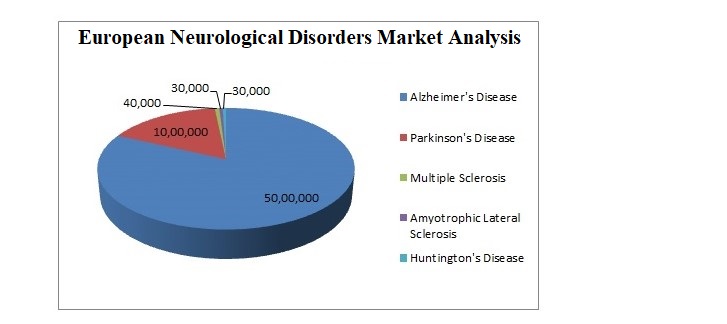
The global ischemic stroke diagnosis and treatment market is segmented on the basis of type and geography. According to type, the market is segmented into, diagnostics and therapeutics. The diagnostic market is further segmented into Computed Tomography Scan (CT scan), Magnetic Resonance Imaging (MRI), Carotid Ultrasound, Cerebral Angiography, Electrocardiography, Echocardiography and Blood tests. The therapeutic market further segments into Tissue Plasminogen Activator Anticoagulant, Antiplatelet and Antihypertensive. Geographically, the market is segmented across four regions namely North America, Europe, Asia Pacific, and LAMEA.
New Product launches and collaborations are some of the key strategies adopted by leading industry players. In March, 2015 has FDA approved WATCHMAN, a left atrial appendage closure device designed to prevent stroke in patients with atrial fibrillation. Silk Road Medical, Inc. has launched an Anti-Stroke Enroute Device, a transcarotid neuroprotection system, designed to access the common carotid artery through a minimally invasive technique. NeuroVive Pharmaceutical AB, entered into collaboration with BBB Therapeutics, for development of the NVP014 drug candidate used in the treatment of ischemic strokes.
The companies profiled in this report include, Abbott Laboratories, Medtronic plc, Boston Scientific Corporation, Cordis Corporation, Koninklijke Philips N.V., GE Healthcare, Siemens AG, Stryker Corporation, Genentech, Inc. and Merck & Co., Inc.
KEY MARKET BENEFITS:
Comprehensive analysis of factors that drive and restrict the growth of the global acute ischemic stroke diagnosis and treatment market is provided
The report provides a comprehensive analysis of the current market and estimations through 2015-2021, which would enable the stakeholders to capitalize on prevailing market opportunities
An in-depth analysis of the key segments of the market demonstrate the types of therapeutics along with the diagnostics that currently used in the acute ischemic stroke market
SWOT analysis highlights the internal environment of leading companies for effective strategy formulation.
The acute ischemic stroke diagnosis and treatment market scenario is comprehensively analysed in accordance to the key regions
Competitive intelligence highlights the business practises followed by leading market players across geographies
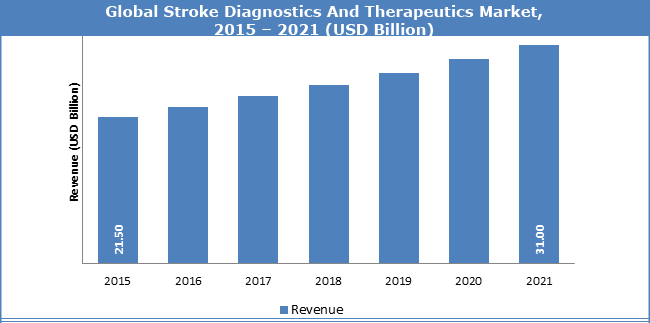
KEY MARKET SEGMENTS:
The global acute ischemic stroke diagnosis and treatment market is segmented below:
Acute Ischemic Stroke Diagnosis and Treatment Market By Type
- Diagnostics
- Computed Tomography (CT)
- Magnetic resonance imaging (MRI)
- Carotid Ultrasound
- Cerebral Angiography
- Electrocardiography
- Echocardiography
- Others
Therapeutics
- Tissue Plasminogen Activator
- Anticoagulant
- Antiplatelet
- Antihypertensive
Acute Ischemic Stroke Diagnosis and Treatment Market By Geography
- North America
- Europe
- Asia-Pacific
- LAMEA
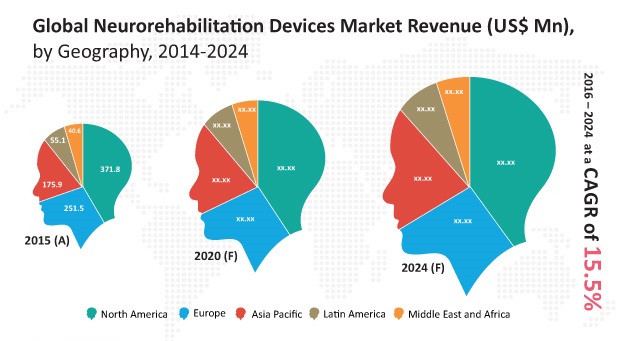
Conference Highlights
To share your views and research, please click here to register for the Conference.
To Collaborate Scientific Professionals around the World
| Conference Date | July 27-28, 2020 | ||
| Sponsors & Exhibitors |
|
||
| Speaker Opportunity Closed | |||
| Poster Opportunity Closed | Click Here to View | ||
Useful Links
Special Issues
All accepted abstracts will be published in respective Our International Journals.
- Journal of Neurological Disorders
- Brain Disorders & Therapy
- International Journal of Neurorehabilitation
Abstracts will be provided with Digital Object Identifier by



